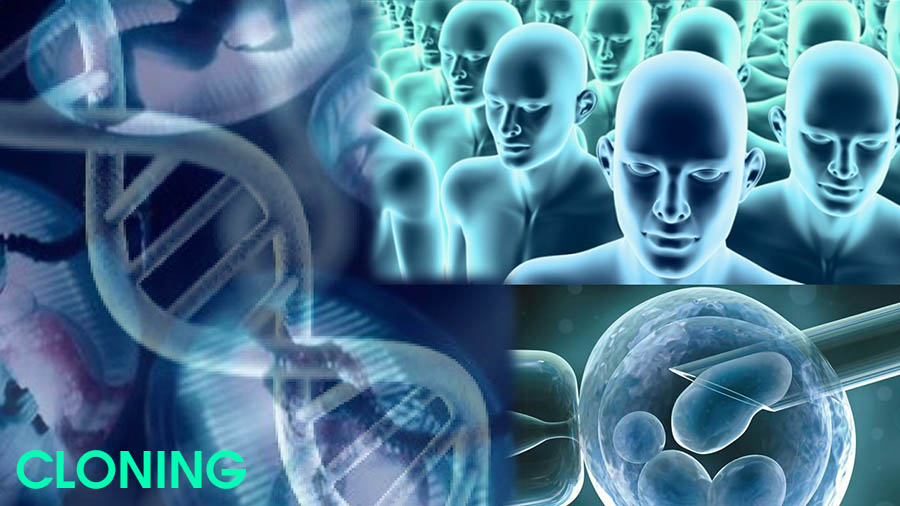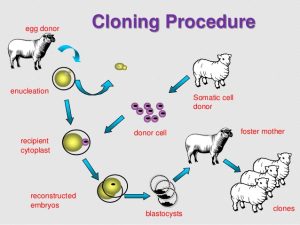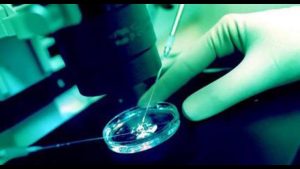- 30 January 2024
- 149
Cloning: What You Really Need to Know, Without the Confusion

Introduction:
Clones, once the stuff of science fiction, are now a tangible reality, sparking a whirlwind of emotions and debates. Recent breakthroughs in human embryo cloning, specifically for therapeutic purposes, have rekindled discussions on the ethical, scientific, and medical implications of cloning. This article provides an in-depth exploration of the science behind cloning, the recent success in human embryo cloning, and the potential impact on medical research.
Understanding Cloning:
- Genetic Identicality: Clones are essentially genetically identical individuals, akin to twins. This fact, as explained by Harry Griffin, PhD, assistant director of the Roslin Institute, dispels common misconceptions propagated by popular culture.
- Embryo Splitting vs. Nuclear Transfer: In the early days, cloning referred to embryo splitting, a process mimicking the natural occurrence of creating identical twins in the womb. However, contemporary cloning predominantly involves nuclear transfer. This process entails replacing the DNA in an unfertilized egg with that from an adult body cell, such as a skin cell.
- Controversy Surrounding Cloning: The controversy arises from the ability of nuclear transfer to replicate existing individuals. While embryo splitting merely results in genetically identical twins, nuclear transfer allows the creation of a new individual with the same genetic makeup as the donor.

Nuclear Transfer Process:
- Mechanics of Nuclear Transfer: In nuclear transfer, the genetic material from an unfertilized egg is replaced with DNA from an adult body cell. This manipulation prompts the cell to divide, eventually forming a genetic replica of the adult-cell donor.
- Evolution of Cloning Technology: The transition from embryo splitting to nuclear transfer marks a significant shift in cloning technology. With nuclear transfer, the controversy intensifies, as it opens the door to copying existing individuals.
- Ethical Considerations: The ability to replicate an individual through nuclear transfer raises ethical questions about the sanctity of life and the potential consequences of cloning. These concerns are central to ongoing debates on the regulation and ethical boundaries of cloning research.

Therapeutic Cloning:
- Recent Breakthrough in Human Embryo Cloning: The most recent development in cloning research involves the successful cloning of a human embryo for therapeutic purposes. Researchers in South Korea and the University of Michigan collaborated to achieve this milestone.
- Research Cloning vs. Reproductive Cloning: It’s crucial to distinguish this achievement from reproductive cloning, where the goal is to create a genetically matched baby. The focus here is on research cloning, also known as therapeutic cloning, aimed at advancing medical knowledge and potential treatments.
- Shift from Theory to Reality: The success in human embryo cloning for therapeutic purposes transforms theoretical concepts into practical applications. This breakthrough raises the stakes in the ongoing debate about whether to ban all forms of cloning or allow certain types for therapeutic benefits.

The Breakthrough Study:
- Experimental Procedure: The groundbreaking study involved collecting 242 eggs donated by 16 South Korean volunteers. Somatic nuclear transfer was employed to replace the genetic material of these eggs with nuclei from donors’ ovarian cells.
- Creation of Genetic Replicas: Through the use of chemicals to trigger cell division, researchers successfully created 30 blastocysts, early-stage embryos containing approximately 100 cells each. These blastocysts were genetic copies of the donor cells, representing a significant leap in cloning technology.
- Potential for Stem Cell Therapy: The researchers went on to harvest a single colony of stem cells from these embryos. These stem cells hold immense potential for treating various diseases due to their ability to grow into any tissue in the human body.
- Promise for Transplantation Medicine: The genetic match between the harvested stem cells and the donor increases the likelihood of successful transplantation. This breakthrough holds promise for transplantation medicine, potentially revolutionizing the treatment of diseases like diabetes, Parkinson’s, and spinal cord injuries.

Ethical Considerations and Debates:
- Ethical Dimensions of Therapeutic Cloning: The success in therapeutic cloning raises ethical questions about the creation and use of human clones for research purposes. Debates intensify on whether strict regulations or outright bans on certain forms of cloning are necessary.
- Balancing Innovation and Ethics: As science progresses, the fine line between innovation and ethical considerations becomes more pronounced. The potential benefits of therapeutic cloning must be weighed against the moral and societal concerns surrounding the creation of genetically Treatment for other health problems identical individuals.
Traditional Cloning vs. Therapeutic Cloning
| Aspect | Traditional Cloning | Therapeutic Cloning |
|---|---|---|
| Purpose | Reproduction | Research and Therapeutic Applications |
| Genetic Outcome | Identical Individuals (Reproduction) | Potential for Therapeutic Benefits |
| Controversy | Ethical Debates | Ethical Considerations with Medical Focus |
| Practical Applications | Limited | Potential for Various Medical Uses |
| Current Status | Well-Established | Emerging Technology with Evolving Implications |
Conclusion:
Clone research, once confined to the realms of speculation, is now a dynamic field contributing to medical advancements. The recent success in human embryo cloning marks a significant leap forward, offering hope for potential cures through stem cell therapy. As debates persist on the ethical considerations surrounding cloning, the scientific community navigates the delicate balance between innovation and ethical responsibility.
In this era of scientific progress, the trajectory of cloning research will likely continue to shape the future of medicine and our societal values.

